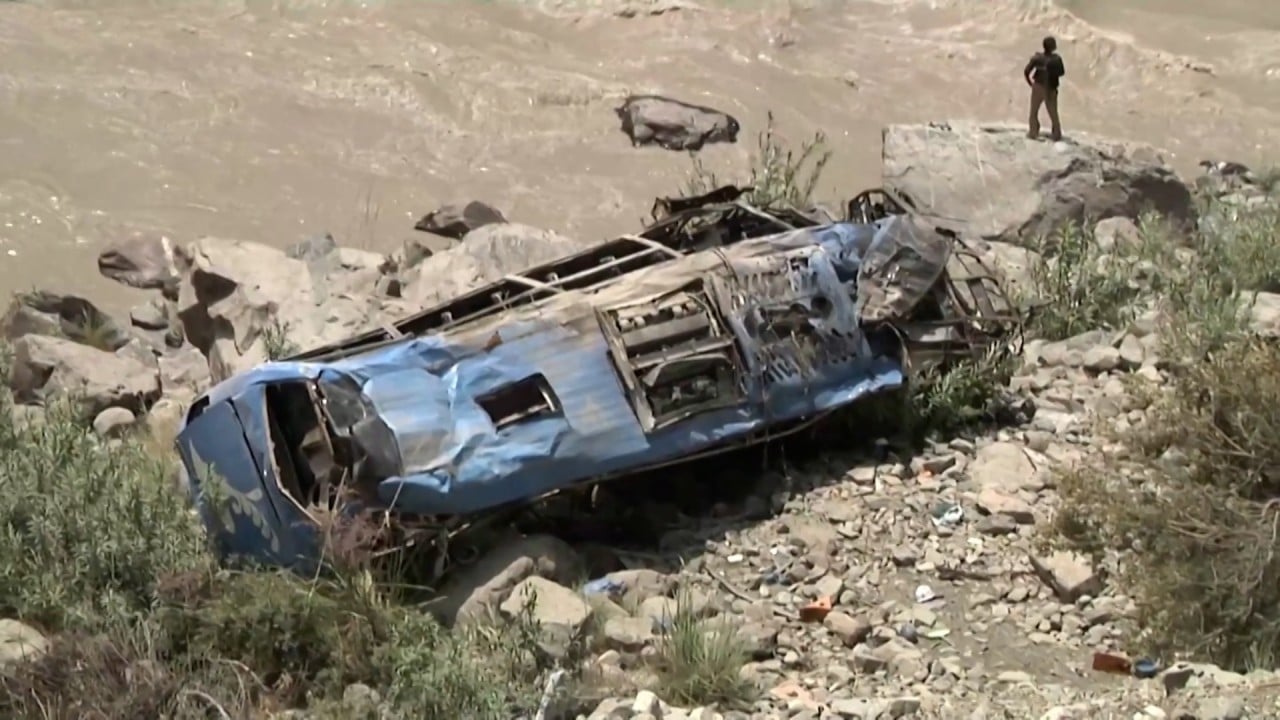
India denies involvement in bus blast that killed Chinese workers in Pakistan
- New Delhi accuses Pakistan of trying to deflect attention from it being ‘the epicentre of regional instability and a safe haven for proscribed terrorists’
- Thirteen were killed in the July 14 attack on a bus carrying Chinese and Pakistani workers to the Dasu hydropower project
The Indian Ministry of External Affairs rejected Pakistan’s allegation and called it an attempt at “peddling lies and propaganda”.
“This is yet another attempt by Pakistan to malign India, in a bid to deflect international attention from its role as the epicentre of regional instability and a safe haven for proscribed terrorists,” a ministry statement said.
India and Pakistan have long been hostile to each other due to territorial conflicts over the Kashmir region since 1947.

03:34
Pakistan says suicide bombing behind July bus blast that killed 9 Chinese nationals
The bus was on its way to the Dasu hydroelectric project – part of the China-Pakistan Economic Corridor (CPEC) being built in the northern Khyber Pakhtunkhwa province – when the blast happened. Thirteen people, including nine Chinese, were killed and dozens injured, with at least 28 Chinese among them.
Beijing urged the Pakistani authorities to conduct an immediate investigation into the incident and to ensure the safety of Chinese personnel and projects in Pakistan.
“As per our investigation, Afghan soil was used for this incident,” Qureshi said. “About its planning and its execution, we’re seeing a clear nexus between the NDS and the RAW.”
Javed Iqbal, Pakistan’s deputy inspector general of counterterrorism police, said that the evidence found during the investigation showed that the TTP planned the attack in Afghanistan and senior officers from the RAW and the NDS directed them, also in Afghanistan.
Security fence at Gwadar port creates new tensions for China, Pakistan
In response to the investigation, China on Friday called for coordinated efforts in the region to rid it of terrorist organisations, without naming any country or group.
“China firmly opposes any force using terrorism to seek geopolitical gains and calls on countries in the region to collaborate in eradicating all terrorist organisations so as to uphold common security and development interests of all countries,” the foreign ministry said in a statement.
Security has been a concern for Beijing’s investments and projects in the region.
In 2019, a group of gunmen attacked a hotel overlooking the Gwadar port project, which is also part of CPEC. At least nine were killed.
In April, the Pakistani Taliban claimed responsibility for a suicide blast at a hotel in Quetta that was hosting Chinese ambassador Nong Rong, who was not present. The blast killed five people.

